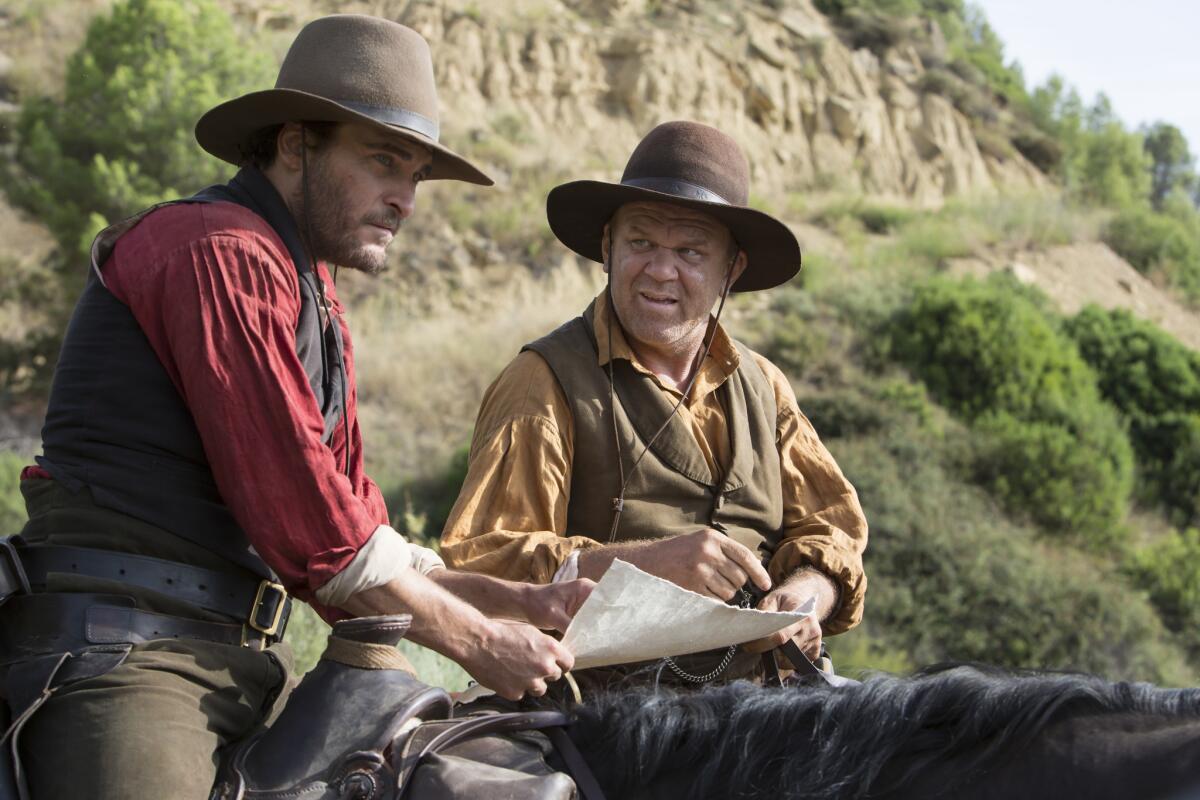A tragedy of manners: Patrick deWitt’s fiction stands alone
The first time I saw Patrick deWitt make a French exit was at a literary conference in Puerto Rico. This was a few years ago, before Hurricane Maria devastated the island, when the palm trees were still standing and the little frogs called coqui were in full voice. A small group of writers had gathered for a cocktail reception. We were discussing the ups and downs of the creative life, the caprices of the publishing industry, and the deliciousness of the drinks; talking shop, essentially. Patrick was describing the challenge of writing the follow-up to his bestselling novel “The Sisters Brothers” when I was momentarily distracted by a waiter bearing a tray of mojitos. I excused myself. When I returned, he was gone.
Patrick deWitt is not an easy person to lose in a crowd. He is tall and lanky, with oversized spectacles on a handsome, somewhat angular face. He has tattoos, naturally, and wears his hair in the style of an emo skateboarder. He is, in a word: distinctive. And yet he managed to slip out of the party unnoticed.
For those who either a) don’t know or b) are well-mannered: a “French exit” is the act of leaving a party or social function without saying goodbye. It is also the name of deWitt’s sparkling new novel, so I felt compelled to call him at his home in Portland, Ore., and ask how he felt about making a French exit.
“There’s no other way to leave a social function as far as I’m concerned,” he said. “I mean, you have to say hello when you arrive, this is a part of socializing and I accept it. But when it’s time to leave do you really want to go through all that rigmarole a second time? There’s no ill will involved in a French exit. It’s just the path of least resistance.”
His 2009 novel “Ablutions” — which for me is one of the best novels about bars and bartending ever written — was followed by “The Sisters Brothers” a picaresque reinvention of the traditional western that was shortlisted for the Man Booker Prize and went on to win several major literary awards in deWitt’s native Canada. The movie adaptation of “The Sisters Brothers,” starring John C. Reilly and Joaquin Phoenix, hits theaters next month.
In 2015 he continued his experimentation with literary forms, publishing his original spin on the fairy tale, “Undermajordomo Minor.” He likes to find a literary genre and then turn it inside out. “French Exit,” written in the style of a classic comedy of manners, fits neatly into this body of work.
The novel tells the story of Frances and Malcolm Price, mother and son, both living off the quickly dwindling fortune of the late Franklin Price, “the most vicious, the most tenacious litigator, defending only the indefensible: the tobacco and pharmaceutical industries, the apparatus of the war machine, gun lobbyists.” Frances, whose “spending was pathological,” had been warned that a day of reckoning was drawing near. When the bad news is finally delivered by the attorney handling their affairs, all he can say is: “What did you think was going to happen? What was your plan?”
She exhaled. “My plan was to die before the money ran out. But I kept and keep not dying, and here I am.”
Frances reluctantly liquidates her art and jewelry on the sly and then, armed with a satchel full of euros and a cat that is, apparently, the reincarnation of her late husband, she and Malcolm decamp to Paris
What follows is a harrowing and hilarious comedy played out against a backdrop of economic decline and impending doom. Which might explain why the novel is billed as “A Tragedy of Manners.” I asked him to clarify.
“I set out to write a traditional British style comedy of manners,” he said. “It’s just a very chatty, bubbly, idiotic, or ridiculous conversation which is sort of my stock in trade and I love to work in that mode. Like Evelyn Waugh and Ivy Compton-Burnett, et cetera. But when I was looking away, the book became more serious for me and the tone shifted. Not to spoil it for anybody but by the end of the book we’re delving into deeper, heavier territory. So I sat around and thought what kind of a book is this? It’s not really a comedy.”
And yet the novel is laugh-out-loud funny; a story where high jinks actually ensue. Did he intend to be so entertaining?
“I really do actually and it’s something I think maybe I hadn’t reconciled myself to. When I was coming up as a reader and then starting to write I had the sense that the idea of amusing people or just simply entertaining them is a frivolity. I’m not really sure where I picked this idea up but it took a period of years for me to get over. And I got over it mostly through reading and just recognizing that my favorite books of fiction are in fact funny. I’m definitely conscious of wanting to entertain my readers but I’m also hoping that they’ll have something of a weightier experience, something with a little bit more bite to it.”
That bite comes in the character of 65-year-old socialite and widow Frances Price. It is rare in literature to find a character as compellingly weird and weirdly compelling as Frances. She’s charming and repulsive, caring and dismissive, an acid-tongued philanthropist and a member of the wealthy elite who moves through the world with her middle finger extended.
As she confides to Malcolm early on in the book: “I ran from one brightly burning disaster to the next, pal. That’s the way I was. Possibly you won’t like to think of your mother as one who lived, but I’ll tell you something: it’s fun to run from one brightly burning disaster to the next.”
Where did she come from? “I wish I could put words to it. It’s just the strangest thing,” deWitt said after a pause. “With any character you bring into your work some of them just want to do right by the book, they want to cooperate. I’m thinking of Eli Sisters, when I was writing that book I was writing in third person and when I realized that Eli was going to be the focal point, I realized I could just listen to him talk for this whole book and so I switched to first person. The situation with Frances was similar. I think of this as her book. If you look at my other books, they’re mostly populated by men and the issues of men, whether its alcoholism or the brotherly bond in ‘Sisters Brothers.’ It was time for me to write from the female point of view. It’s something that in the past I’ve been hesitant to do out of a fear of getting it wrong. But when I did start digging into Frances and her psyche and personality there was a sort of a release for me. It felt excellent to be creating this character.”
In contrast, Malcolm is almost morbidly passive. Ignored by his father, shunted off to boarding school at the earliest possible age, he doesn’t just have trouble connecting to the world, he has no interest in connecting. As you could imagine, this frustrates his fiancée Susan who, for reasons she herself doesn’t understand, loves him. Even Malcolm’s sex life is bland. As he tells his mother, “I think the problem is that I don’t care enough.”
Frances gives him some solid parental advice. “If you do one thing well, it might as well be that.” She is talking about sex, but as the story unfolds, as Malcolm reveals some of his darker secrets, he begins to desire connection and, in his own peculiar way, to care.

In Puerto Rico I had talked to deWitt about the inspiration for “The Sisters Brothers.” He’d simply written the words “sensitive cowboys” on a scrap of paper. I asked him if there was a similar genesis for this book.
“It’s not so tidy a starting point for this book. After ‘Sisters Brothers’ I started a book that was supposed to be about a character like Bernie Madoff. This is a character who expatriates to Paris to avoid imprisonment. I went to Paris to study up on the scene and what it was like to live there. I did all this research only to realize that this book wasn’t really doing it for me. And the problem was the protagonist. I’m sure it was a failing on my part but I like to blame the character. It wasn’t until I was about three-fourths through the writing of ‘French Exit’ that I realized what I’d done, I’d written a book around the abandoned book’s auxiliary characters. I don’t know how I didn’t pick up on it sooner, it’s just a testament to how spacey I really am.”
Frances and Malcolm arrive at a borrowed apartment in Paris and begin to rebuild their lives. As they do, they are joined by more and more people: a lonely American widow, a psychic, a private detective, a doctor, a wine merchant, Susan and her new boyfriend named Tom, who stop in for various reasons and end up lingering. As deWitt described it, “I knew that I wanted the apartment to get increasingly fuller to the point of it being ridiculous. I was thinking of certain scenes in Jane Bowles’ ‘Two Serious Ladies’ where people just arrive and move in to a house because they like it there.”
Or, as her late husband asks via a séance in the living room: “Frances,” said Franklin. “Have you fallen in with a mad cast of plucky, down-at-heel characters?”
But it’s not all wine and croissants for Frances and Malcolm, that’s just not how things work in a Patrick deWitt universe. The author can’t help himself. The worm has to turn, the other shoe drops, and the ending is inevitable and strangely satisfying.
“I like to share bad news. It’s part of my personality,” he said. “But I also know that the best way to deliver bad news is with a little sugar sprinkle over the top. It’s just a more complex thing to ingest and it’s fuller to me. People telling jokes at funerals. It’s the most useful tool, humor. And we need it now more than ever.”
Mark Haskell Smith is a Los Angeles author. His most recent books are the novel “Blown” and “Naked at Lunch: A Reluctant Nudist’s Adventures in the Clothing-Optional World.”
More to Read
Sign up for our Book Club newsletter
Get the latest news, events and more from the Los Angeles Times Book Club, and help us get L.A. reading and talking.
You may occasionally receive promotional content from the Los Angeles Times.







